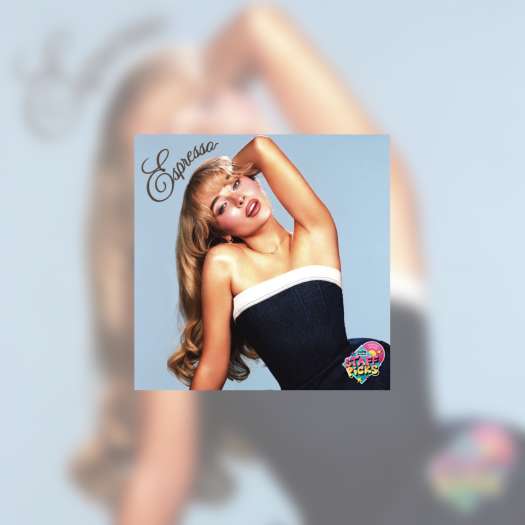Chemistry, and life for that matter, are studies of change. Both are driven by a combination of elements interacting — sometimes unpredictably so — to produce something either wonderful or devastating. Both are defined by their transformation, and how they can balance previous selves with the new to become a strong iteration of what they were always meant to be. These parallels lie at the heart of Lessons in Chemistry.
Boasting detailed. period-appropriate production design and convincing performances, Lessons in Chemistry proves itself to be a sweet, rewarding and, at times, moving watch — but never a memorable or revelatory one. For a story about the unpredictability of life and the mysteries of DNA, it rarely veers from the chemical formula to become a novel breakthrough.
Brie Larson stars as Elizabeth Zott, a lab technician in name only, primarily cleaning beakers and vacuum-brewing coffee at Hastings Research Institute. It's the only position in a chemistry lab available to a woman in the 1950s, so she weathers the condescension of her male counterparts in the hopes of getting a chance to prove her worth as a chemist.
Elizabeth is a character we've seen countless times before: intellectually gifted but socially challenged, with her direct, literal-minded demeanour often played for laughs when she clashes with her "tradwife" colleagues and chauvinistic superiors, who force her to participate in a demeaning beauty pageant. Yet, Larson's nuanced turn never allows Elizabeth to be pigeonholed, cementing a character that is far from stereotypical.
She soon butts heads with the lab's star chemist, Calvin Evans (Lewis Pullman), who is hard at work securing the prestigious Remsen grant for the institute. After noticing that Calvin subsists on a diet of nuts from the cafeteria vending machine, Elizabeth begins sharing her passion of cooking with him, bringing him a delectable assortment of home-cooked meals. It's not long before they become enamoured with each other, sparking an intellectual and romantic connection around abiogenesis— the process of life arising from chemical, non-life origins. For the first time in her life, Elizabeth feels safe and appreciated for something other than her physical appearance.
From there, Lessons in Chemistry, like its source material written by Bonnie Garmus, branches out in myriad directions, in which Elizabeth becomes a formidable chemist, a civil rights ally, a budding mother, and an adored TV chef who transforms the kitchen into a bastion for female empowerment. Though her story is as bubbly and playful as show's doo-wop intro, it never becomes as impactful as it hopes, shying away from the meat of its heavy conversations and commentary.
This is directly seen in its handling of the era's overt sexism. For much of its runtime, the conflicts and dilemmas are incredibly straightforward, with clear-cut heroes and villains. While it feels satisfying to watch Elizabeth return fire to a bevy of slimy misogynists in the form of a pointed one-liner, as a whole, Lessons in Chemistry doesn't add anything to the conversation around sexism's prevelance in the workplace and society at large. It aims for easy targets and hits them dead in the centre.
Such humdrum commentary leaves its most sour taste in a subplot revolving around Calvin's neighbour, Harriet (Aja Naomi King), who finds herself embroiled in a battle to save her predominantly Black community from a freeway being built straight through it. It's a plotline with clear racial undertones, but quickly goes nowhere, as if purpose-built to fluff out the scope of each episode rather than flesh out Harriet's arc. As a result, it holds virtually no bearing on the trajectory of the overarching narrative, concluding so unceremoniously that it feels like an afterthought. It's an unfortunate irony that a series about intelligent women being pushed to the sidelines, does just that to one of its most spirited and courageous characters.
Yet, these shortcomings don't inhibit Lessons in Chemistry from packing heartfelt catharsis at every turn. Though adorned with clichéd and formulaic trappings, the series imbues each episode with clever, purposeful editing that plays with multiple timelines, narrative devices and perspectives — such as shifting from a startling character death to a voiceover from a canine companion. While such choices can feel superfluous, they keep each of the eight hourlong episodes fresh and well-paced.
But this adaptation's greatest asset is the charming, captivating dynamic between Calvin and Elizabeth, whose romance is the embodiment of the scientific study they hold dear. The duo's mashup of introverted sensibilities and free-flowing genius is a treat to experience, as watching them slowly accept each other and build an atypical family dynamic (at least for the '50s) is as engrossing as it is satisfying. Their interplay, full of scientific terminology, unearths smart observations on common, oft-neglected truths, reminding us that all the meticulous planning and precise timing can't prepare us for life's most cruel and beautiful surprises. It's in these links between chemistry and the human experience where the series is at its most poignant.
At its strongest, Lessons in Chemistry is a transportive mid-century period piece that relishes the culinary delights Elizabeth concocts for her TV audience. Its world possesses a vibrant, tangible quality that perfectly captures the plasticky contentedness of the period, and while its tired take on the ills of sexism does dampen its staying power, the series never fails to be a gratifying underdog story, one that's equal parts illuminating and heartwarming.
(Apple TV+)Boasting detailed. period-appropriate production design and convincing performances, Lessons in Chemistry proves itself to be a sweet, rewarding and, at times, moving watch — but never a memorable or revelatory one. For a story about the unpredictability of life and the mysteries of DNA, it rarely veers from the chemical formula to become a novel breakthrough.
Brie Larson stars as Elizabeth Zott, a lab technician in name only, primarily cleaning beakers and vacuum-brewing coffee at Hastings Research Institute. It's the only position in a chemistry lab available to a woman in the 1950s, so she weathers the condescension of her male counterparts in the hopes of getting a chance to prove her worth as a chemist.
Elizabeth is a character we've seen countless times before: intellectually gifted but socially challenged, with her direct, literal-minded demeanour often played for laughs when she clashes with her "tradwife" colleagues and chauvinistic superiors, who force her to participate in a demeaning beauty pageant. Yet, Larson's nuanced turn never allows Elizabeth to be pigeonholed, cementing a character that is far from stereotypical.
She soon butts heads with the lab's star chemist, Calvin Evans (Lewis Pullman), who is hard at work securing the prestigious Remsen grant for the institute. After noticing that Calvin subsists on a diet of nuts from the cafeteria vending machine, Elizabeth begins sharing her passion of cooking with him, bringing him a delectable assortment of home-cooked meals. It's not long before they become enamoured with each other, sparking an intellectual and romantic connection around abiogenesis— the process of life arising from chemical, non-life origins. For the first time in her life, Elizabeth feels safe and appreciated for something other than her physical appearance.
From there, Lessons in Chemistry, like its source material written by Bonnie Garmus, branches out in myriad directions, in which Elizabeth becomes a formidable chemist, a civil rights ally, a budding mother, and an adored TV chef who transforms the kitchen into a bastion for female empowerment. Though her story is as bubbly and playful as show's doo-wop intro, it never becomes as impactful as it hopes, shying away from the meat of its heavy conversations and commentary.
This is directly seen in its handling of the era's overt sexism. For much of its runtime, the conflicts and dilemmas are incredibly straightforward, with clear-cut heroes and villains. While it feels satisfying to watch Elizabeth return fire to a bevy of slimy misogynists in the form of a pointed one-liner, as a whole, Lessons in Chemistry doesn't add anything to the conversation around sexism's prevelance in the workplace and society at large. It aims for easy targets and hits them dead in the centre.
Such humdrum commentary leaves its most sour taste in a subplot revolving around Calvin's neighbour, Harriet (Aja Naomi King), who finds herself embroiled in a battle to save her predominantly Black community from a freeway being built straight through it. It's a plotline with clear racial undertones, but quickly goes nowhere, as if purpose-built to fluff out the scope of each episode rather than flesh out Harriet's arc. As a result, it holds virtually no bearing on the trajectory of the overarching narrative, concluding so unceremoniously that it feels like an afterthought. It's an unfortunate irony that a series about intelligent women being pushed to the sidelines, does just that to one of its most spirited and courageous characters.
Yet, these shortcomings don't inhibit Lessons in Chemistry from packing heartfelt catharsis at every turn. Though adorned with clichéd and formulaic trappings, the series imbues each episode with clever, purposeful editing that plays with multiple timelines, narrative devices and perspectives — such as shifting from a startling character death to a voiceover from a canine companion. While such choices can feel superfluous, they keep each of the eight hourlong episodes fresh and well-paced.
But this adaptation's greatest asset is the charming, captivating dynamic between Calvin and Elizabeth, whose romance is the embodiment of the scientific study they hold dear. The duo's mashup of introverted sensibilities and free-flowing genius is a treat to experience, as watching them slowly accept each other and build an atypical family dynamic (at least for the '50s) is as engrossing as it is satisfying. Their interplay, full of scientific terminology, unearths smart observations on common, oft-neglected truths, reminding us that all the meticulous planning and precise timing can't prepare us for life's most cruel and beautiful surprises. It's in these links between chemistry and the human experience where the series is at its most poignant.
At its strongest, Lessons in Chemistry is a transportive mid-century period piece that relishes the culinary delights Elizabeth concocts for her TV audience. Its world possesses a vibrant, tangible quality that perfectly captures the plasticky contentedness of the period, and while its tired take on the ills of sexism does dampen its staying power, the series never fails to be a gratifying underdog story, one that's equal parts illuminating and heartwarming.




